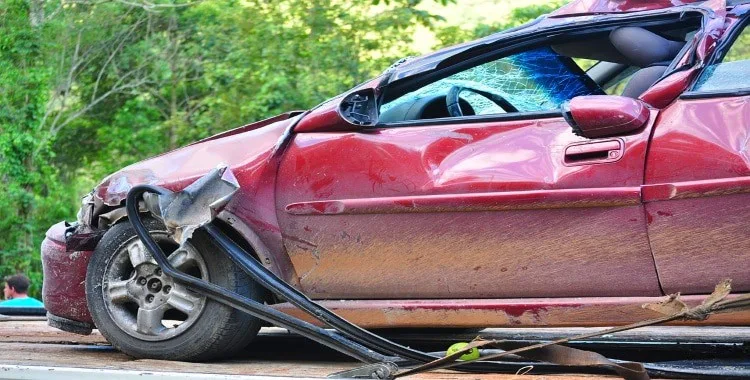
Car accidents are unfortunate events that can happen to anyone, often leaving us feeling overwhelmed and uncertain about the next steps to take. In such situations, having a clear understanding of what to do and what to avoid can make a significant difference in ensuring everyone’s safety and handling the aftermath effectively. This article outlines eight essential dos and don’ts to keep in mind when involved in a car accident, providing valuable guidance for navigating these challenging situations.
- Do Stay Calm and Check for Injuries: Remaining calm is pivotal in such situations. After the accident, take a few deep breaths to compose yourself. Evaluate your condition and check on your passengers and others involved for injuries. If anyone is hurt, call emergency services immediately. If you are trained in first aid, assist while waiting for professional help. Comforting those in need can help manage the situation until medical professionals arrive, ensuring everyone receives appropriate care and attention.
- Don’t Admit Fault or Apologize: Resist the urge to admit fault or apologize, regardless of the circumstances. These statements can be misconstrued and complicate insurance claims or legal proceedings. Instead, focus on exchanging necessary information with the other parties involved. Provide a factual account of the incident to the police, insurance providers, and any legal authorities present. Being accurate and honest in your description can help in resolving the situation smoothly.
- Do Document the Accident: Thoroughly document the accident scene to preserve crucial evidence. Take clear, detailed photos of the vehicles involved, their positions, damages, and any relevant road signs or signals. Note down the date, time, weather conditions, and any visible injuries sustained by those involved. Additionally, write down your account of the incident, including the sequence of events leading up to the accident. This comprehensive documentation serves as valuable evidence during insurance claims and legal processes, ensuring a fair and accurate resolution.
- Don’t Forget to Exchange Information: Exchange essential information with all parties involved, including names, addresses, phone numbers, insurance details, and vehicle license plate numbers. Additionally, collect contact information from witnesses present at the scene. Ensure the details exchanged are accurate, as they are vital for insurance claims and legal proceedings. Double-check the information before leaving the accident site to avoid discrepancies later on.
- Contact the Right Attorney: What type of accident were you involved in? Is it a truck accident, motorcycle accident, bicycle accident, or Food Order Delivery Car Accident? It’s important to seek legal advice from an experienced attorney specializing in the accident you were involved in. A knowledgeable attorney can guide you through the legal process, ensuring your rights are protected and helping you navigate complex insurance claims. They can assist in gathering evidence, negotiating with insurance companies, and, if necessary, representing your case in court. Contacting the right attorney can significantly impact the outcome of your situation.
- Don’t Delay Reporting to Authorities: Promptly report the accident to the appropriate authorities, especially if there are injuries or significant property damage. Even seemingly minor accidents should be reported in many jurisdictions. Cooperate fully with law enforcement, providing accurate information about the incident. Your cooperation can expedite the resolution and ensure a thorough investigation if required. Reporting the accident promptly is a legal obligation in many places and helps in determining liability accurately.
- Contact Your Insurance Company: Notify your insurance provider about the accident as soon as possible, regardless of the perceived severity. Provide them with all necessary information, including details of the other parties involved and the accident report number if applicable. Cooperate fully during the claims process, offering any required documentation and answering their inquiries truthfully. Keep meticulous records of all interactions with your insurance company, including names, dates, and details of the conversations. This organized approach can facilitate a smoother claims process and ensure that your rights are protected.
- Don’t Neglect Your Emotional Well-being: After a car accident, it’s natural to experience a range of emotions, including shock, anxiety, and even trauma. One crucial “don’t” is not to neglect your emotional well-being. It’s common for accident survivors to downplay their emotional distress, but it’s essential to acknowledge your feelings and seek support if needed. Avoid bottling up your emotions, as this can lead to long-term mental health issues. Reach out to friends, family, or mental health professionals who can provide the necessary support and guidance during this challenging time.
Conclusion
Being involved in a car accident is undoubtedly a stressful experience, but knowing the dos and don’ts can help you navigate the situation with confidence and composure. By staying calm, assessing the situation, prioritizing safety, and communicating effectively, you can protect yourself, your passengers, and others involved. Remember, acting responsibly, following legal procedures, and seeking medical attention when necessary are vital steps to take. By adhering to these guidelines, you can handle a car accident situation with clarity and ensure a smoother process for everyone involved.
- Impact of Emotionally Absent Fathers on Daughters - April 30, 2024
- Sagittarius Man & Gemini Woman Love and Sex Compatibility - January 31, 2024
- Taurus Ascendant Rising Personality Traits in Men (Guide) - January 31, 2024
